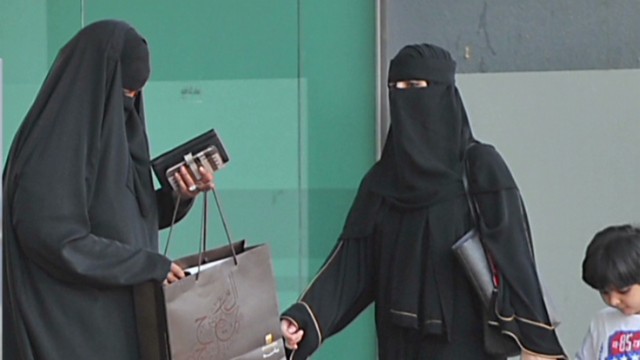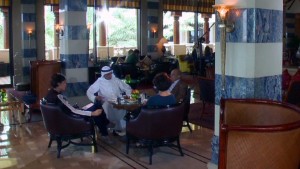What world gets wrong about Arab women
 Zainab Salbi is an Iraqi-American author, entrepreneur and filmmaker. She is the founder of Women for Women International.
Watch her in a special town hall meeting at the Clinton Global
Initiative hosted by CNN's Erin Burnett at 9 p.m. ET Wednesday. The
views expressed are the author's own.
Zainab Salbi is an Iraqi-American author, entrepreneur and filmmaker. She is the founder of Women for Women International.
Watch her in a special town hall meeting at the Clinton Global
Initiative hosted by CNN's Erin Burnett at 9 p.m. ET Wednesday. The
views expressed are the author's own.
(CNN) -- Three years ago, scenes of the Arab Spring broadcast across the globe showed women who appeared to be equal participants in the revolutions and their aftermath. These images of women taking such public positions -- from Tunisia to Egypt, Libya and Yemen -- took much of the world by surprise.

Zainab Salbi
But not Arabs. Despite
the stereotype of them as an oppressed group, Arab women have a long
history of participating in the region's upheavals, dating back at least
to the anti-colonial movement when women emerged from the confinement
of the household to take up crucial organizational positions.
Today, as the world
grapples with this challenging and tumultuous moment in the region, it
is important to pay close attention to the voices of Arab women and
their plight. But rather than confining the story of women to an issue
of religion or culture, it is important that the world uses what is
happening to them as a barometer of the trajectory that individual
societies are on. After all, how a country or a region treats its women
in many ways tells the story of the future political direction of that
country.
The trouble is that this trajectory is in too many cases not particularly encouraging. In the Arab Spring's aftermath, there have been plans to lower the legal marriage age, support expressed for polygamy
after years of being regulated, restrictions on women's mobility and
political participation, a massive increase in sexual harassment and
assault on the streets with police failing to intervene, and the use of virginity tests on women arrested for participating in a demonstration, as seen in Egypt.

Opportunity in a post-Arab Spring world

Women drive for change in Saudi Arabia
But young women now are
not willing to back away from their demands, and they are speaking out
in spite of public harassment. And while many women have been beaten and
imprisoned for making their voices heard, they have crossed what is
often described as the line of fear.
In doing so, their
message to the older generation of feminists is that the rights of women
must be included in the civil rights discussion of societies more
broadly. The hope is that the voice of women might also have more
influence on the direction of policy in the region, perhaps offering a
path that encourages calm in a part of the world too often wracked by
violence.
Ultimately, what young
women in the post-Arab Spring are saying is that they are seeking out a
new form of identity, one that is inclusive of both their religious
identity and their desire for civil liberties. It is with this view in
mind that my partners Abby Disney, Gini Reticker and I announced our
commitment at the Clinton Global Initiative 2014 to launch "The Trials
of Spring," a multimedia initiative that focuses on the voices of Arab
women, their plight and their dreams for the future.
The world can no longer
treat women's issues as if they are somehow separate from everything
that goes on in, and defines, a country or region. Indeed, women should
be seen as the bellwether for the direction of society at large -- where
women thrive, so do opportunities for all. Where women are oppressed,
oppression of all dissenting voices typically goes hand in hand.
Above all though, women's
issues should not be discussed as if they are somehow relevant only at
the margins of a society. Instead, they should be considered front and
center, and an international priority. And the first step toward making
them such a priority is listening to what they have to say in the first
place.










0 comments:
Post a Comment